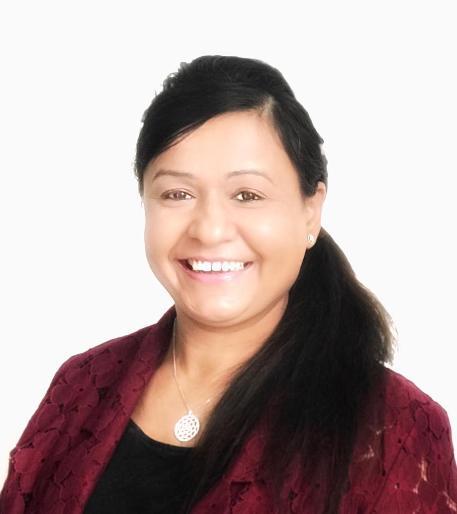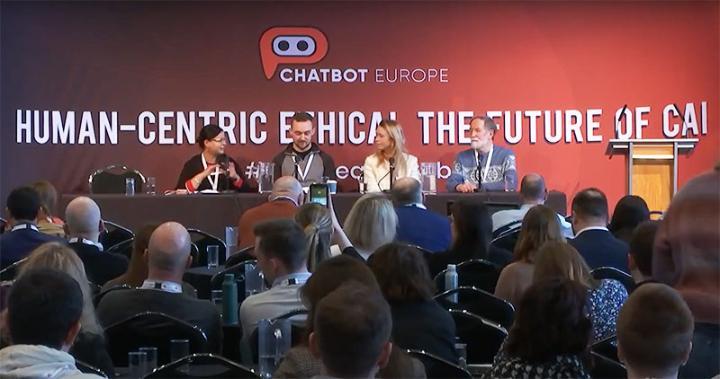Academic Profile - Dr Kulvinder Panesar
Exploring the applications of conversational AI
In this article, we talk to Dr Kulvinder Panesar, Assistant Professor of Applied Artificial Intelligence in the Faculty of Engineering and Digital Technologies about how her interest in Natural Language Processing (NLP) and AI has developed over her career, her current projects and what's on the horizon.
How did you get started in AI?
My background was in advanced database systems, and as course leader of this subject I found I was spending a huge amount of time responding to lots of similar queries about technical aspects of the course from potential students, and I realised I needed a tool that would deal with these website queries automatically. However, I couldn’t find anything suitable (back in 2010), so this inspired me to base a PhD around the design and build of a conversational agent. Little did I know that I was going into the conversational AI space, and I also needed to know a lot about language and linguistics, which led me to a part-time doctoral degree for seven years to accommodate these cross disciplinary areas.
I was exploring this space when chatbots, conversational AI and services like Amazon’s Alexa were coming through - it was an exciting time, and I could see this was going to be big. I also attended seminars with like-minded people in the Leeds area which gave me a great opportunity to develop skills in coding, and I shared my research as it progressed. I realised that as an NLP (natural language processing) scientist, I was moving into a unique domain where I could understand what was happening ‘under the hood’ of this new technology, and from this perspective I was writing papers on the journey from conversational AI to applied AI, which are still getting reviews and citations today. This specific journey has enabled an active LinkedIn profile to share, collaborate, and keep-up to date in both the technical and research space supported with a British Computer Society (BCS) MBCS membership and community.

Dr Kulvinder Panesar
Why did you come to the University of Bradford?
I felt like my previous role (at York St. John University) was great for teaching computer science modules and especially gaining experience of teaching the Level 6 – Artificial Intelligence module but was not giving me the research support I needed, as well as being a grueling 75-mile daily commute. I was impressed by Professor Hassan Ugail, the Centre for Visual Computing and Intelligent Systems and the University of Bradford's research strategy and felt it would be a good fit for where I was in my career.
Since I started in 2020, I’ve had the opportunity to run a research seminar series and worked as Outreach, Marketing and Placement Lead for the department which I’ve really enjoyed and has helped develop my public speaking skills. I’ve seen the Applied AI course I teach grow in numbers every year since it began, and there are students who have interests in different sectors which helped to shape the project work on the course.
Can you tell us about your current research?
In 2020, I attended two conferences, the International Conference on Role and Reference Grammar (RRG, 2020) and the International Conference on Meaning and Knowledge Representation (MKR2020) when I met my research collaborator Dr María Beatriz Pérez Cabello de Alba from UNED in Madrid, Spain. In working together, we realised that there's something special about the linguistic theory we've been working on, Psycholinguistic Cognitive Adequacy (PSA).
We’ve used this research to create a pre-screening tool for detecting early-stage language and cognitive decline in individuals concerned about their memory, particularly in relation to dementia. We presented our work in stages to RRG21, MKR2022 and MK2023. Basically, we can analyse a person’s speech using a range of parameters to give a non-invasive and cost-effective test for the signs of dementia. We published the paper Natural language processing-driven framework for the early detection of language and cognitive decline in October 2023.

Kulvinder (left) moderating a research panel at the European Chatbot and Conversational AI Summit 2023
We’ve been working hard on developing this technology and have had a few unsuccessful funding applications, but we’ve used the feedback from these to expand the scope of the work and include more researchers, including psychologists, dementia experts and PPI (Patient and Public Involvement) trials. We’re confident going forward that our proposal ‘a multimodal AI Agent for pre-screening cognitive function of adults – using speech and language analysis’, will be a lot more robust and we’re hopeful of funding success in the near future.
Have you got any other projects at the moment or coming up?
I have been involved with an exciting student entrepreneurial project which has RIEDA funding. It’s a medical AI chatbot that will help all students practise with a virtual patient as a mock assessment for the OSCE exams (which assess clinical skills and knowledge). We’re currently looking to recruit an NLP developer for the project and are also exploring options to commercialise this as a product.
Something coming up I’m looking forward to is being a research panel moderator for the upcoming European Chatbot & Conversational (ECC) AI Summit talk titled ‘Next Generation AI: Transformative force and disruptive ramifications. This has been a global talking point since the start of 2023 and top of the list of topical conversations in 2024. My public speaking confidence has grown from my previous research moderation roles in 2022 and 2023 and more recently I became part of the organizing committee of the ECC AI Summit.
I am also involved with AI Tech UK as an AI Ambassador, researcher and Ethics AI adviser, and I volunteer my time to work with them because I believe that the work, they do to democratize AI is important. They are a knowledge exchange platform offering advice on the ethics of AI and how it can be integrated and adopted and have several arrangements with the University of Bradford. I have supported AI Tech UK on several activities such as sessions on Ethics of AI to MSc Data Analytics and AI students in the Faculty of Management and Law.
